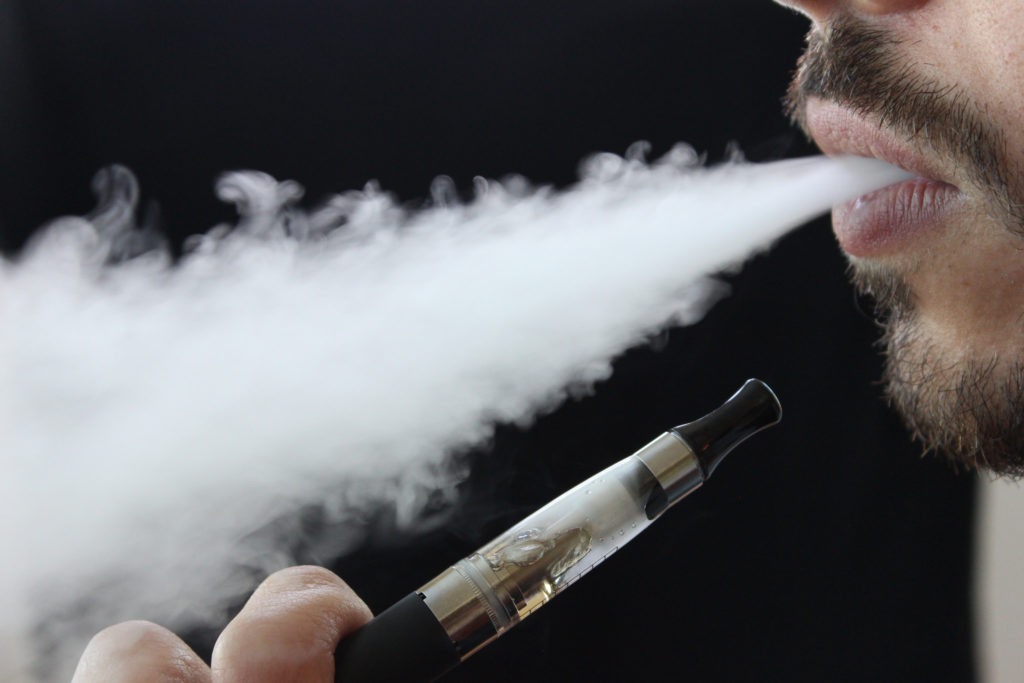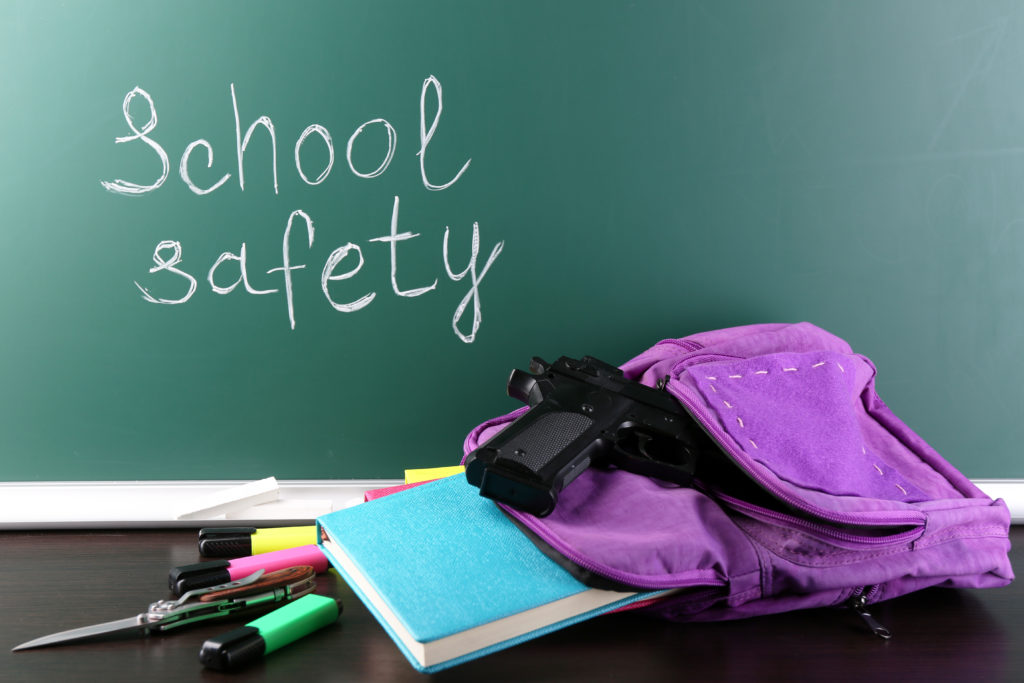Bill to raise tobacco age has unlikely allies: Altria, Juul

Congress is moving to pass the biggest new sales restrictions on tobacco products in more than a decade, with support from two unlikely backers: Marlboro-cigarette maker Altria and vaping giant Juul Labs. The legislation would raise the minimum age to purchase all tobacco products, including electronic cigarettes, from 18 to 21 nationwide, a step long-sought by health advocates. But in the past year Juul and Altria have emerged as the biggest supporters of the measure, blanketing Capitol Hill with lobbyists and advertisements touting their support for a national “Tobacco 21” law. Tobacco critics contend the companies’ support is calculated to head off even harder-hitting government action: a ban on all flavored tobacco products, including fruit and dessert e-cigarettes. Their stance puts them in the unusual position of criticizing a move they long supported, arguing that the sales restriction isn’t enough. “Altria and Juul clearly support this in order to argue that no other action is necessary,” said Matthew Myers of the Campaign for Tobacco-Free Kids. “If you don’t eliminate the flavors that the industry has used to fuel the epidemic, you won’t solve the youth e-cigarette crisis.” The bipartisan legislation, supported by Senate Majority Leader Mitch McConnell of Kentucky, has been attached to a package of must-pass spending bills that will keep the government running into next year. Juul and Altria — the vaping company’s biggest investor — threw their support behind the bill earlier this year amid a backlash against e-cigarettes at the local, state and national levels. E-cigarettes are battery-powered devices that typically heat a flavored nicotine solution into an inhalable aerosol. Current federal law prohibits sales of e-cigarettes and all other tobacco products to those under 18. But more than one in four high school students report vaping regularly, according to the latest government figures. And health officials have called the vaping trend an “epidemic.” Until September, Juul argued that its sweet flavors — including mango, mint and fruit — could help adult smokers switch from traditional cigarettes to vaping. But the company dropped that message as President Donald Trump announced plans to remove virtually all vaping flavors from the market, due to their appeal to children. The Silicon Valley company has halted sales of all but two of its flavors, menthol and tobacco, and pledged not to oppose Trump’s plan. But momentum for the nationwide ban has faded amid push-back from vaping advocates and some conservative groups. And Trump has voiced support for alternative approaches to keep e-cigarettes away from kids, including raising the purchase age to 21. The age hike is expected to limit the supply of all vaping and tobacco products in high schools by putting them out of reach to 12th graders. Myers’ group and other health advocates say Congress should both raise the age limit and ban all “kid-friendly” flavors. Even with most of Juul’s flavors off the market, smaller companies continue to market an array of flavored products, including “grape slushie,” “strawberry cotton candy” and “sea salt blueberry.” And the industry’s main trade association is suing to keep e-cigarettes, including flavors, widely available. Altria, the nation’s largest tobacco company, said it supports a “clean” Tobacco 21 bill — focused exclusively on raising the age limit — because it is the “quickest and most effective” way to address the recent surge in teen vaping. For decades previously, Altria and other tobacco companies aggressively defended the 18-year-old minimum purchase age. Juul has similarly supported legislation that raises the purchase age without touching flavors. And while the companies say they lobby separately, both quickly backed the Tobacco 21 bill introduced in May by McConnell and Virginia Democratic Sen. Tim Kaine. The companies’ support sapped attention away from other proposals that would have gone much further. For example, a bill from New Jersey Democratic Rep. Frank Pallone would have raised the purchase age to 21 and banned flavors from all vaping and tobacco products — including menthol cigarettes — and prohibited online sales. The bill was endorsed by a dozen health groups including the American Academy of Pediatrics, the American Cancer Society and the American Lung Association. “Flavors attract kids and kids are the tobacco industry — including the e-cigarette industry’s — future,” said Erika Sward, a vice president with the American Lung Association. But efforts to advance flavor restrictions in the Senate fell flat, including a bill sponsored by Sen. Lisa Murkowski, Republican-Alaska, and Sen. Dick Durbin, Democrat-Illnois, that was withdrawn from committee consideration at the last minute. “Because I wasn’t certain that I had the votes at the time,” Murkowski told The Associated Press. “You don’t want to lose.” The logic for hiking the purchase age for cigarettes is clear: most underage teens who use tobacco get it from older friends. An estimated 90 percent of smokers start before age 18. Delaying access to cigarettes is expected to produce major downstream health benefits, with one government-funded report estimating nearly 250,000 fewer deaths due to tobacco over several decades. Still, anti-tobacco experts say age restrictions are only effective when they are vigorously enforced, and tobacco sales can fall through the cracks amid a patchwork of local, state and federal law enforcement. They point to underage drinking as an example of the limited impact of age-based restrictions. State laws banning tobacco sales to those under 18 evolved over several decades and were reinforced by a federal law in 2009. The same law banned all flavors from traditional cigarettes except menthol, which received a special exception at the behest of tobacco lobbyists. More than a third of U.S. states — including California, Illinois, New York and Texas — and the District of Columbia have already raised their minimum purchase age to 21. Anti-smoking groups have tracked the trend with measured support, noting the role of Juul and Altria lobbyists behind many of the efforts. In several cases, anti-tobacco advocates have flagged provisions that they say undercut the state laws’ effectiveness. These provisions, known as pre-emption, can stop city and county officials from imposing stricter tobacco
Prosecuting those who lie to buy guns could strain resources

A Trump administration plan to crack down on people who lie to buy guns faces a giant hurdle: It relies on federal agents and prosecutors who are already overwhelmed with other responsibilities. Prosecutors and officials from the U.S. Bureau of Alcohol, Tobacco, Firearms and Explosives have historically preferred to use their limited resources to deal with violent crimes rather than aggressively pursue people who give false information on background check forms. Lying on the forms is a felony, and prosecutors sometimes struggle to win convictions. Still, both sides of the gun control debate welcomed the effort, as President Donald Trump faced criticism for backpedaling from his earlier demands for sweeping reforms in favor of the powerful National Rifle Association. By enforcing existing federal law, Attorney General Jeff Sessions’ plan allows the Trump administration to show it is taking action on gun crime in the aftermath of the Florida school shootings while avoiding more restrictive approaches that would never win approval from gun-rights groups or congressional Republicans. Tens of thousands of people are denied guns each year because of problems with their background checks. But a review by the Justice Department’s inspector general found prosecutions for lying during that process are rare. The ATF referred more than 500 so-called lie-and-try cases to federal prosecutors between 2008 and 2015, the review found, but fewer than 32 cases each year were even considered for prosecution. “We must vigilantly protect the integrity of the background check system through appropriate prosecution of those who attempt to circumvent the law,” Sessions wrote in a memo directing federal prosecutors to bring more cases. It was among several Justice Department initiatives unrolled in response to the shootings in Parkland, Fla., which left 17 people dead. Sessions told federal prosecutors to focus primarily on people denied guns because they are violent felons, fugitives or have domestic violence convictions, which the Justice Department says will help preserve limited resources for cases that pose the greatest threat to public safety. But some current and former law enforcement officials feared that any additional emphasis on such cases would detract from more pressing concerns, such as prosecuting people who buy guns on behalf of felons or those who try to buy guns illegally and are successful. Lie-and-try cases are hard to try in court because prosecutors must convince a jury that a prospective gun buyer intended to lie, rather than just made a mistake or misunderstood what the law allows, which is sometimes the case. And officials stress there are other ways for someone who can’t legally own a gun to get one, such as from private sellers or at gun shows, where federal background checks aren’t required. “There is a reason why they are not getting prosecuted heavily at the moment, and that’s because they are less-than-compelling cases. They’re not getting guns,” John Walsh, a former U.S. attorney in Colorado, said. Walsh’s 2013 testimony about the Obama administration’s gun control proposals quickly turned to a grilling from Republican lawmakers about why so few people were being prosecuted for lying in their attempts to buy guns. An Obama appointee, he argued there was no way the Justice Department could have prosecuted more than a million people who were rejected for gun purchases over a 15-year period. An ATF spokesman said the agency supports the administration’s approach and would shift resources accordingly. There are reasons for concern about those who try and fail to buy guns. Government-funded studies show they are more likely to be arrested in the five years following the denial than in the five years before it. But Walsh said he doubted Sessions’ directive would result in a tidal wave of new cases. The memo asks federal prosecutors to work with local ATF leaders to review their guidelines for handling the cases and to submit a specially tailored plan for approval. It doesn’t say what could happen to U.S. attorney’s offices that don’t comply. “This is in the nature of window dressing,” Walsh said. The move puts additional pressure on the perennially resource-strapped agency at a time when it has already been asked to take on a growing role in the Trump administration’s broader crackdown on violent crime. Trump, for example, ordered ATF to work toward banning rapid-fire bump stocks like those used in last year’s Las Vegas massacre despite the agency’s prior approval of the devices. Extra ATF agents were deployed last summer to cities like Chicago and Baltimore that saw spikes in shootings. “It’s kind of a tiered approach on how you have to manage resources,” said Michael Bouchard, a retired assistant director who is now president of the ATF Association. “You’re going to take people away from doing things that are going to have a significant impact on violent crime.” Lie-and-try prosecutions would not have prevented the shootings in Las Vegas or Florida because the gunmen bought their guns legally. A man who slaughtered more than two dozen parishioners at a Texas church last year got his weapon only because information about his domestic violence conviction was never entered into the federal database. After that shooting Sessions launched a wide-ranging review of the system, which also sought information on the number of recent lie-and-try investigations. But the Justice Department on Tuesday would not release the data or other results of the review beyond an executive summary. Republished with the permission of the Associated Press.
ATF, Crime Stoppers increase reward to keep Alabama schools safe, gun-free

The Bureau of Alcohol, Tobacco, Firearms and Explosives (ATF) and the Central Alabama Crime Stoppers have joined forces to help make Alabama schools a little more safe. According to the Alabama News Network, the ATF will now offer a $500 reward through Crime Stoppers for any tip that leads to the confiscation of a gun on school grounds, including after-school sanctioned events. Previously students were offered $50 gift cards. The reward increase comes in the wake of the program’s proven track record of success. During the 2015-16 school year, Central Alabama Crime Stoppers paid out a total of $900 to tipsters for school-related crimes throughout the River Region. The Scholastic Tip Line resulted in 22 criminal arrests and the clearance of 29 criminal cases on school grounds. Students from every school in Autauga, Elmore, Lowndes, Macon, Montgomery, Pike and Tallapoosa counties are eligible for the increased reward. Designed to help law enforcement fight crime by gathering information from the public, Crime Stoppers encourages the public to help them fight crime by offering tipsters anonymity, even accepting tips through their Facebook page. Anyone with information about guns being brought to school in the River Region is asked to call their local police or Central Alabama Crime Stoppers at 215-STOP.
ADPH supports new FDA regulations for all tobacco, smoking products effective Aug. 8

New Food and Drug Administration (FDA) regulations for all tobacco and smoking products are poised to take effect next month in attempt to reduce the number of minors purchasing and using tobacco products. Beginning Aug. 8, the FDA will review new tobacco products not yet on the market, help prevent misleading claims by tobacco product manufacturers, evaluate the ingredients of tobacco products and how they are made and communicate the potential risks of tobacco products by issuing health warnings and advisories. The Alabama Department of Public Health (ADPH) came out Wednesday in support of the new regulations to restrict the sale of all tobacco products, including e-cigarettes, cigars, hookah tobacco and pipe tobacco, among others, as well as to restrict the sale of all tobacco products to minors. “Tobacco use remains a significant public health threat and is the leading cause of preventable disease and death in Alabama,” Alabama State Health Officer Dr. Tom Miller said. “We applaud efforts by the Food and Drug Administration (FDA) to control these dangerous products.” According to the ADPH, 9,000 deaths annually in Alabama are attributed to smoking-related diseases. These deaths are due to cancer, cardiovascular disease, respiratory disease, secondhand smoke and smoking related fires. A recent survey supported by the FDA and the Centers for Disease Control and Prevention show current e-cigarette use among high school students has increased from 1.5 percent in 2011 to 16 percent in 2015 — more than 900 percent. The ADPH is concerned with a particular variety of e-cigarettes called “vaping,” which includes the use of liquid tobacco in e-cigarettes. These are battery-powered devices that heat a liquid — usually containing nicotine mixed with the chemicals propylene glycol and glycerin, and often flavorings ranging from bubble gum to watermelon — into a vapor that users can inhale. They deliver nicotine, a highly addictive drug, to the body without producing any smoke. The ADPH hopes these new regulations will help combat the use of these dangerous products.
Angi Stalnaker: Why e-cigarette tax proposal is shortsighted

The upcoming Special Session is likely to have its share of political drama and made for TV nightly news antics but in the end, it is incumbent that we all remember that every law that is passed and every law that fails in this, and every other legislative session has a very real world impact on the very real citizens of Alabama. Laws can help the people of this state and laws can hurt the people of this state. It all depends on the choices that the 140 elected men and women of the Alabama House and Senate make. In his call, Gov. Robert Bentley is asking those very men and women to pass a tax on e-cigarettes, vapors and related products. (The specifics of that legislation will not be known until the bill is actually filed.) He is asking them to lump these products in with a tax on tobacco and to treat them as similar products. That makes about as much sense as passing a bill to tax fast food and adding apples and bananas to the mix. Tax fast cars and add a Model T to the list. E-cigs and vapor products have nothing in common with cigarettes and to treat them as similar products in order to raise revenue is not only misguided, it stands to hurt thousands of Alabamians. Vapors and e-cigarettes are not tobacco products. They produce no smoke. There is no flame involved. No lighters, no igniter, no flame is to be found anywhere with these items. They don’t produce smoke. They emit water vapor. That’s right: water vapor. There is a lot of misinformation about these products and lawmakers should make every effort to educate themselves on the facts before passing such a misguided law: Myth: Vapors and e-cigarettes are just another form of smoking Fact: Numerous medical studies show that vapors and e-cigarettes are not smoking. In fact, just the opposite is true. Studies show that vapors and e-cigarettes are among the most effective smoking cessation (quitting smoking) products available. Even the American Heart Association’s Circulation Journal published a 2014 study that determined that the smoking cessation success rate for former smokers who use vapor nicotine products was substantially higher than other nicotine replacements therapies including nicotine gun, patches and lozenges. Myth: The vapors from these products cause harm to those around users much like second-hand smoke Fact: The output is simply water vapor and is completely harmless. Myth: Vapors and e-cigarettes encourage non-smokers to smoke. Fact: Longitudinal studies show that less than 3 percent of people who have never smoked cigarettes will try an e-cigarette or vapor product. Myth: Driving these companies out of business won’t hurt the economy. Fact: More than 2,000 Alabamians are employed as a result of the e-cigarette and vapor business. That is more people than will be employed by Remington and almost four times as many people as will be employed by Google’s Alabama location. These are real Alabamians that are at risk of losing their jobs if this tax passes. Myth: Taxing vapors and e-cigarettes will generate revenue for the state of Alabama Fact: Overwhelming evidence shows that imposing a tax on e-cigarettes and vapor products will make them too expensive and will force many who have stopped smoking in favor of vapor and/or e-cigarettes to return to smoking cigarettes due to the cost. This will have a net negative effect on the Medicaid budget for the state which will shoulder a portion of the cost of the health issues of those who returned to smoking cigarettes. Tens of thousands of Alabamians who have tried everything to quit smoking and who have repeatedly failed have found success with the assistance of vaping. They have, once and for all, put down their deadly and costly cigarette habit in favor of a much healthier alternative. They are now far less likely to develop lung cancer and other diseases than they were when they were tobacco users. They develop fewer lung infections and can breathe easier. Their children are no longer impacted by the harmful effects of second-hand smoke. They are healthier and Alabama is healthier because they have given up cigarettes. Now, we want to tax them? Why? In his press conference, Bentley stated that he was including e-cigs in his smoking tax legislation because “they contain nicotine.” That is true. Many smoking cessation products contain nicotine so why aren’t products like Nicorette gum and other nicotine replacement therapies included in this schizophrenic proposal? Nicorette is far less effective at ending a smoking addiction than e-cigarettes are so it would actually do less harm to Alabamians to tax that product instead. It would still be ridiculous, but less so that a vaping tax. You can just add that to the list of things that don’t make sense about this bill. If the legislature, in all its wisdom, chooses to pass a tax on e-cigs and vaping products, they will be making horrible public policy. They will be telling people like Stephanie, a cancer survivor and single mother from Birmingham, that they don’t care that she won’t be available to afford the e-juice that keeps her from smoking cigarettes and that, in fact, keeps her alive. They will send a signal to everyone who has quit and everyone who will quit using vapor products that taxing the products is more important than their very lives. They are telling 2,000 employees and more than 100 retail store owners that they don’t matter. The saddest part is that, in the end, the vaping tax will actually cost Alabama’s general fund much more money that it will ever raise. As people fall back into smoking cigarettes, they will be more likely to develop expensive and lethal diseases that will kill them. The treatments are expensive and Medicaid, which is funded by the already overburdened General Fund, will shoulder most of the cost. A lot of things about government don’t make sense but this absolutely takes the cake. Quitting smoking is
Tax proposal would cover most common adult vices

Alabama Today has learned that Rep. Jack Williams is looking into a way to restructure state statutes that govern materials deemed for adult consumption only, such as alcohol and tobacco, to include pornography and institute a tax on them going into the Special Session on budget. It’s not possible to tax pornography individually since such material can’t be taxed based on content. However, a restructuring of materials for adult consumption would allow one tax in statute for anything that requires proof of being older than 18. NBC News last year reported on the profitability of pornographic materials, “Globally, porn is a $97 billion industry,” according to Kassia Wosick, assistant professor of sociology at New Mexico State University. Between $10 billion and $12 billion of that comes from the United States. Revenue from traditional porn films has been shrinking, though, because of piracy and an abundance of free content on the Internet. Williams said he’s “Not willing to tax Pepsi if I’m not going to tax Playboy and Penthouse, too,” a reference to another tax proposal that is being discussed. Whether such a proposal will make it and how other members would support it remains to be seen. Alabama Today will continue to add updates to this proposal and others as they’re floated and introduced.


